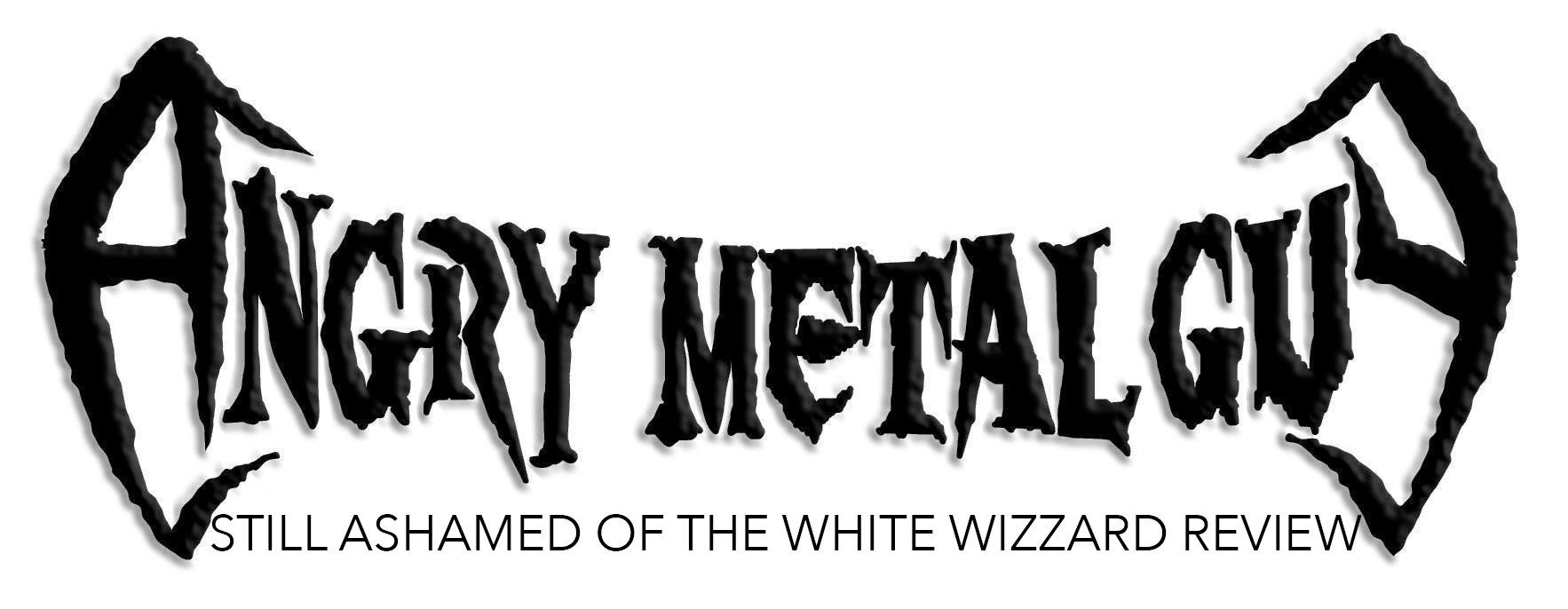 So, there’s been a lot of stink on this website (and other websites) about reviews that I write where I give a band a bad score. One of the most fascinating responses that I get is the one where people tell me that I am “not objective.” As an Angry Metal Guy who feels very strongly about how much I want to blow up the entire concept of postmodernism, I hate to say this because it’s a very postmodern claim, but let’s revisit an old cliche, shall we? “Art is in the eye of the beholder.”
So, there’s been a lot of stink on this website (and other websites) about reviews that I write where I give a band a bad score. One of the most fascinating responses that I get is the one where people tell me that I am “not objective.” As an Angry Metal Guy who feels very strongly about how much I want to blow up the entire concept of postmodernism, I hate to say this because it’s a very postmodern claim, but let’s revisit an old cliche, shall we? “Art is in the eye of the beholder.”
Now I know what you’re thinking “Amaranthe isn’t art, who the fuck would call that pablum art?” but in a very strict sense of art as creative cultural output (thus porn and choose your own adventure books are also art), every shitty band that has ever existed has produced art. The question, then, becomes a question of the quality of art. But of course, quality is a very difficult thing to actually judge. Some people hate modern art, whereas other people love it. Some people can’t stand any kind of metal, whereas other people spend their entire days trying to find out about every single obscure death metal band that has ever existed so that they can prove how much better than you they are. All of these people are consuming cultural output, they all have opinions and let me ask you a question: who is right?
Well, the answer to that question as you well know is: Angry Metal Guy is right. Right? RIGHT!??!? Well, of course not. No one is right. The entire reviewing business is opinion and if you need proof of that ask yourself “How do you quantify good?” I mean, what is it? Is it talent? Every band that I have reviewed here is talented. So unless they are actually not performing their music well, is it impossible to say that a band is bad? Well, certainly no one would ever actually come out and say that. I mean, Sonic Syndicate’s last record received horribly low scores from pretty much everyone, but did they not play their instruments well? Of course they did! So what, then? Is it composition? What are the objective standards by which we judge composition? How do you quantify composition? Is it that there is a verse, pre-chorus, chorus, verse, bridge, pre-chorus, chorus song structure? Is that what’s good? Actually, according to one very successful songwriter who wrote for Shania Twain (whom I despise, mind you), the exact opposite is true. A song needs to be catchy, but it also needs something that surprises you.
I’m assuming that you’re catching the drift of my argument by now: objectivity is a logical impossibility in regard to art. If we consider that objectivity is something quantifiable, testable and that we are able to really able to work with repeatedly and come up with the same results again and again, then objectivity is not possible in the subjective judgments of reviewers1. In fact, if I ask 5 people, I will get 5 different responses as to what objectivity actually is. It is a contested term.
But everyone knows this. I mean, the commenter that (finally) sparked this little rant knows this as well. Because what he means by objectivity, really, is “you don’t agree with me!” This is a strain of reasoning that I will call naive realism (Ross & Ward 1996). These two authors point out how it is that people come to this point of view that something that is really an opinion is somehow objective, right and more importantly that the person who is saying differently must be biased in their own right:
The layperson’s social understanding, we suggest, rests on three related convictions about the relation between his or her subjective experience and the nature of phenomena that give rise to that subjective experience. [These are summed up by these three rules – AMG]
1. That I see entities and events as they are in objective reality, and that my social attitudes, beliefs, preferences, priorities, and the like follow from a relatively dispassionate, unbiased and essentially “unmediated” apprehension of the information or evidence at hand.
2. That other rational social perceivers generally will share my reactions, behaviors, and opinions, provided that they have had access to the same information that gave rise to my views, and provided that they too have processed that information in a reasonably thoughtful and open-minded fashion.
3. That the failure of a given individual or group to share my views arises from one of three possible sourcesâ: (a) the individual or group in question may have been exposed to a different sample of information than I was (in which case, provided that the other party is reasonable and open minded, the sharing or pooling of information should lead us to reach agreement); (b) the individual or group in question may be lazy, irrational, or otherwise unable or unwilling to proceed in a normative fashion from objective evidence to reasonable conclusions; or (c) the individual or group in question may be biased (either in interpreting the evidence, or in proceeding from evidence to conclusions) by ideology, self-interest, or some other distorting personal influence.
The first tenet thus asserts, essentially, that I see things as they are. […] The second tenet further asserts that other rational, reasonable people […] will share both my experiences and responses (110-111).
This is fundamentally what someone is saying when they tell me that because I don’t agree with them that I am not being objective. They are essentially saying “I am in possession of the proper information, if you listened to me and were reasonable you would agree with me. You don’t agree with me, therefore, you are unreasonable.”
On its face, then, reviewing music is a scam. It’s a big pile of bullshit! So why would I (a) undermine my own ‘authority’ by writing this post and (b) do it in the first place? Those are great questions. I don’t review records to be particularly objective, I review records to give my point of view on the music that I love and consume in massive quantities. I make claims, probably even naively realistic claims (hi there everyone who think they are going to think they’re being clever by turning my discussion back on myself!), but I do them in the full knowledge that not everyone who reads my reviews is going to agree with me. And that’s the point. I have one opinion and I enjoy writing, listening to new music and turning people on to stuff that they’ve never heard before. I make a concerted effort to get to smaller releases and more obscure things (as much as time allows) because people regularly tell me that they discovered great things on this website. But even the most die hard AMG reader disagrees with me a good portion of the time. That is the nature of this beast.
And let me end with this thought: remember that it is never in my interest to write a bad review. It is always in my interest to write good reviews. You see, I don’t advertize, but were I to start, every click would be money in my pocket. Few share negative reviews, while bands and labels put their positive reviews on their Facebook pages, on Twitter and their websites, which generates huge amounts of traffic. It is, therefore, always in my interest to say that every band is fucking awesome and that this new record is the best record ever. I don’t do that because I don’t think that, and frankly, I don’t give a shit about what labels think of me. My good reviews generate traffic and my bad reviews turn people off from bands, but someone who’s interested in a band can read my bad review and disagree, or even check the band out for themselves and find that they disagree with me.
I do what I do because I love to do it. There is no such thing as ‘music journalism,’ because no one has any incentive (or ability) to be ‘objective’ about the metal industry. It’s all about access, so why would you offend people intentionally who you are relying on for access2? I can never give you an ‘objective’ point of view, and you shouldn’t read my reviews for that reason. I write reviews that are meant to be entertaining, fun to read and to give one view on what I think of a record or band. And there are so many reviewers out there who hack away at their keyboards and blow sunshine up the asses of labels and bands in order to get spots on a guest list and meet their favorite bands, that I see no reason why I shouldn’t just tell the truth of what I think. Because I don’t give a shit about that.
So to everyone out there who wants me to be ‘objective’, I present you with a challenge: you show me a way to quantifiably rate music in an objective and consistent way and I will take back my opinionated reviews and I will judge the record based only on those merits. But the only way I can think of is performances. And given the ability of musicians to actually record entire albums note by note and to tune bad vocal parts in the studio and so forth, that’s kind of out the window now, too, isn’t it? So good luck with that, I’m looking forward to the MASSES of propositions I’m going to get on the subject matter.
But until then, objectivity be damned.
References:
Chalmers, Alan F. 1999 [1976]. What Is This Thing Called Science? St. Lucia, Queensland, Australia. Open University Press.
Daston, Lorraine and Peter Galison. 1992. “The Image of Objectivity.” Representations. 40. Special Issue: Seeing Science (Autumn). 81-128. Internet Source (Need University Access).
Ross, L., Ward, A. 1996. ‘Naive Realism in Everyday Life: Implications for Social Conflict and Misunderstanding’, in E.S. Reed et al. (eds) Values and Knowledge. Mahwah, New Jersey: Lawrenece Erlbaum Assiociates. Internet Source (PDF file)


















